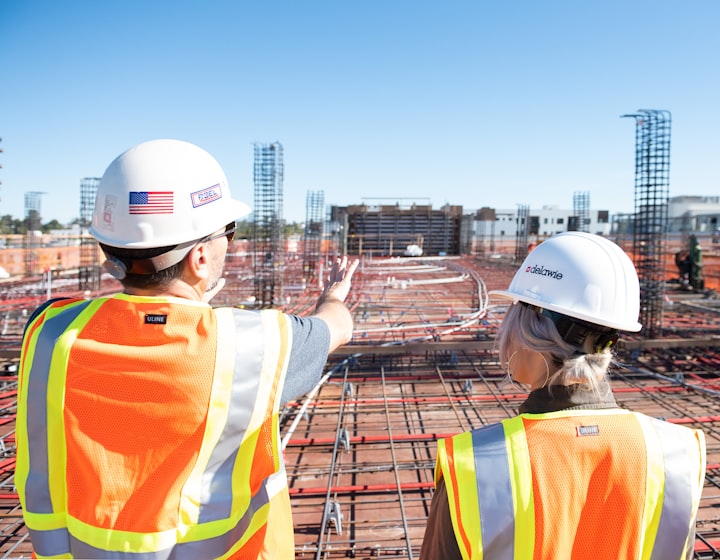What Kind of Drug Test Do Most Construction Companies Use?
Understanding the Essentials of Drug Testing for Construction Employers and Employees

Introduction
In the construction industry, safety is paramount. The use of heavy machinery, the need for precise coordination, and the potential for high-risk activities make it essential to ensure that all workers are operating at their best. One key aspect of maintaining a safe workplace is the implementation of drug testing. For construction employers and employees alike, understanding the type of drug testing commonly used in the industry is crucial.
Types of Drug Tests
There are several types of drug tests that construction companies might use, each with its own advantages and considerations:
- Urine Testing: The most common method due to its cost-effectiveness and ability to detect a wide range of substances. Urine tests can identify drugs like marijuana, cocaine, opiates, and amphetamines. However, they primarily detect recent drug use, typically within the past few days.
- Hair Follicle Testing: This method provides a longer detection window, potentially identifying drug use over the past 90 days. While more expensive, hair tests are useful for pre-employment screenings to gauge long-term substance use.
- Blood Testing: Although less common due to its invasive nature and higher cost, blood testing is very accurate. It's mostly used in post-accident situations to determine if drug use was a contributing factor.
- Saliva Testing: Gaining popularity for its non-invasive nature, saliva tests can detect drugs used in the last few hours up to a couple of days. This makes them suitable for random testing or reasonable suspicion testing.
- Breath Alcohol Testing: Specifically for detecting alcohol use, breath tests are a standard method for immediate results, especially useful in post-accident or reasonable suspicion scenarios.
Industry Preferences and Regulations
Most construction companies prefer urine testing due to its balance of cost, ease of administration, and effective detection range. However, the choice of test can depend on various factors:
- Pre-employment: Hair follicle tests are becoming more common for their ability to detect long-term drug use.
- Random Testing: Urine and saliva tests are favored for their quick and non-invasive nature.
- Post-Accident: Blood and breath alcohol tests are often used to ascertain immediate substance use.
In addition to company preferences, there are regulatory considerations. For instance, the Occupational Safety and Health Administration (OSHA) and the Department of Transportation (DOT) have guidelines and requirements that might influence the choice of drug testing methods.
Implementing a Drug Testing Policy
For construction employers, implementing a drug testing policy involves several steps:
- Understanding Legal Requirements: Be aware of federal, state, and local laws regarding drug testing.
- Choosing the Right Tests: Select tests that suit your company's needs and comply with legal requirements.
- Clear Communication: Ensure that all employees understand the drug testing policy, including the types of tests used, the circumstances under which testing occurs, and the consequences of a positive test.
- Partnering with a Reliable Testing Facility: Choose a certified and reliable facility to ensure accurate and timely results.
- Ensuring Privacy and Fairness: Handle all testing and results confidentially and consistently to maintain trust and respect among employees.
Conclusion
For construction companies, selecting the right type of drug test is a balance of cost, accuracy, legal compliance, and the specific needs of the workplace. While urine tests remain the most popular due to their practicality, other methods like hair follicle and saliva tests are also valuable tools. Ultimately, a well-implemented drug testing policy not only enhances safety but also contributes to a responsible and professional work environment.
FAQs:
What is the most common drug test used in construction companies?
Exploring the Popularity of Urine Testing in Construction Safety Protocols
How effective are hair follicle tests in detecting long-term drug use for pre-employment screening?
Hair Follicle Testing in Construction: A Tool for Long-Term Substance Use Detection
Are there specific legal requirements for drug testing in the construction industry?
Navigating Legal Requirements for Drug Testing in the Construction Sector
What type of drug test is typically used in post-accident situations in construction?
Post-Accident Drug Testing: Understanding the Role of Blood and Breath Tests in Construction
How can construction companies implement an effective drug testing policy?
Key Steps to Implementing an Effective Drug Testing Policy in Construction
What are the benefits of implementing a drug testing policy in construction?
Enhancing Workplace Safety and Professionalism: Benefits of Drug Testing in Construction
Is saliva testing becoming more popular in the construction industry?
The Rising Trend of Saliva Testing in Construction: Benefits and Limitations
How do construction companies ensure privacy and fairness in drug testing?
Maintaining Confidentiality and Fairness in Construction Drug Testing Practices
Can construction companies use different types of drug tests for different situations?
Tailoring Drug Testing Methods to Different Situations in the Construction Industry
What are the consequences of a positive drug test in the construction sector?
Understanding the Implications of a Positive Drug Test in the Construction Workplace






Comments
There are no comments for this story
Be the first to respond and start the conversation.